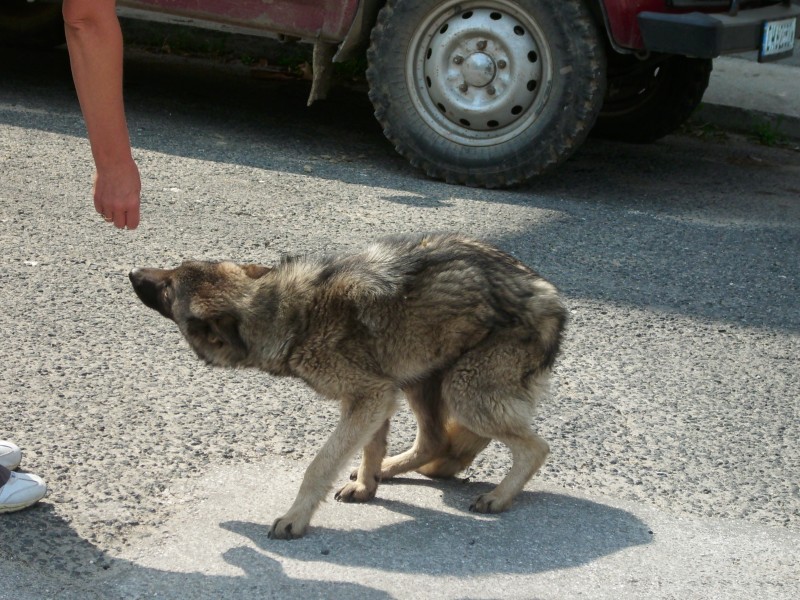The concept of socialization seems like an obvious one to most dog owners. After all, the first half of the word is “social.” And since humans and dogs are both social creatures – learning to be social must be the goal. Right? Actually, no.
Misconception 1: “I need to introduce my dog to a lot of dogs so he will be socialized.”
For starters, socialization shouldn’t be viewed as getting your dog to like other dogs. Truthfully, if your dog sees you (not other dogs) as the greatest thing in the world, both you and your dog will have a much happier life. Socialization is simply the act of positively introducing your dog to the world around him so he will know how to safely and confidently navigate whatever life throws his way. So if you think about it, the socialization of dogs is much more about teaching dogs to comfortably ignore things, rather than to like them. This includes (but is not limited to): other dogs, sudden noises, changes in the texture of the ground under his feet, fast moving objects, and various people. A well-socialized dog desires to be present and engaged with its owner/handler, no matter the situations – even more than it desires to play with other dogs.
Misconception 2: “Dog parks are the best way to socialize my dog.”
This is by far the biggest and perhaps the most destructive misconceptions about socialization. While dog parks can be useful and fun places under certain circumstances, they can have a very negative effect on dogs when the goal is socialization. Effective socialization is:
1) Controlled
2) Varied
3) Interactive (between dog and owner)
Dog parks, by their vary nature, work against all of these points.
Dog parks are more of a study in chaos, than control – you and your dog don’t always know who you’re going to meet, what their attitude toward your dog is going to be, and you can’t necessarily control such situations very well. Avoiding these moments is paramount for socialization – especially for young dogs.
When people focus on socializing their dogs at dog parks, they often forget about the bigger picture. Retail locations that allow dogs, walks in different parks and neighborhoods, and controlled experiences with different dogs and people will give your dog the well-rounded worldview that is desirable. Mixing it up is especially important for young puppies, as the period of their life from 0-4 months (but after they’ve had all of their shots) is the biggest window for learning, as their brains develop.
Lastly, the best way to teach your dog to “ignore” situations during socialization is to train them in and around new and different stimuli that is appropriate per your dog’s level of training. Unless you’re alone in the dog park, this will be very difficult to do.
Misconceptions 3: “Taking your dog with you to a lot of places is socialization.”
While you must expose your dog to many different experiences to socialize it, the ultimate goal of all of this must be to build neutral to positive associations. Experiences that strike fear in the dog, can actually produce the exact opposite of the desired result. Again, control is key.
To ensure non-negative associations, you have three tools to always consider:
– Space – a dog doesn’t need to direct contact with something new to learn about it. Simply being in the proximity of new experiences is socialization.
– Time – don’t rush it. Only introduce your dog to things you are confident it is ready for. While a walk through The Home Depot may be a good experience for your dog, if you don’t think it’s ready to watch the fork lift – know that it’s okay not to do it and be confident in your dog’s ability to get there. This isn’t a test.
– Rewards and praise – When new experiences are accompanied with rewards (toys/treats) and praise, positive associations are made – it’s Classical Conditioning.
– It’s okay to tell people, “no, thank you.” Don’t be afraid to tell strangers that your dog is in training and can’t “say hi” right now. And don’t feel like your dog needs to go meet the big dog pulling its owner across the street to see you. Despite pleas from the other dog’s owner that “he just wants to say hi,” if your dog isn’t ready for it, be sure not to put him in that situation.
Lastly, be sure not to confuse socialization with behavior modification. If your dog is legitimately struggling with something that you feel it shouldn’t be struggling with, call in a professional dog trainer. The website for the Association of Professional Dog Trainers (APDT) is a good place to start.

